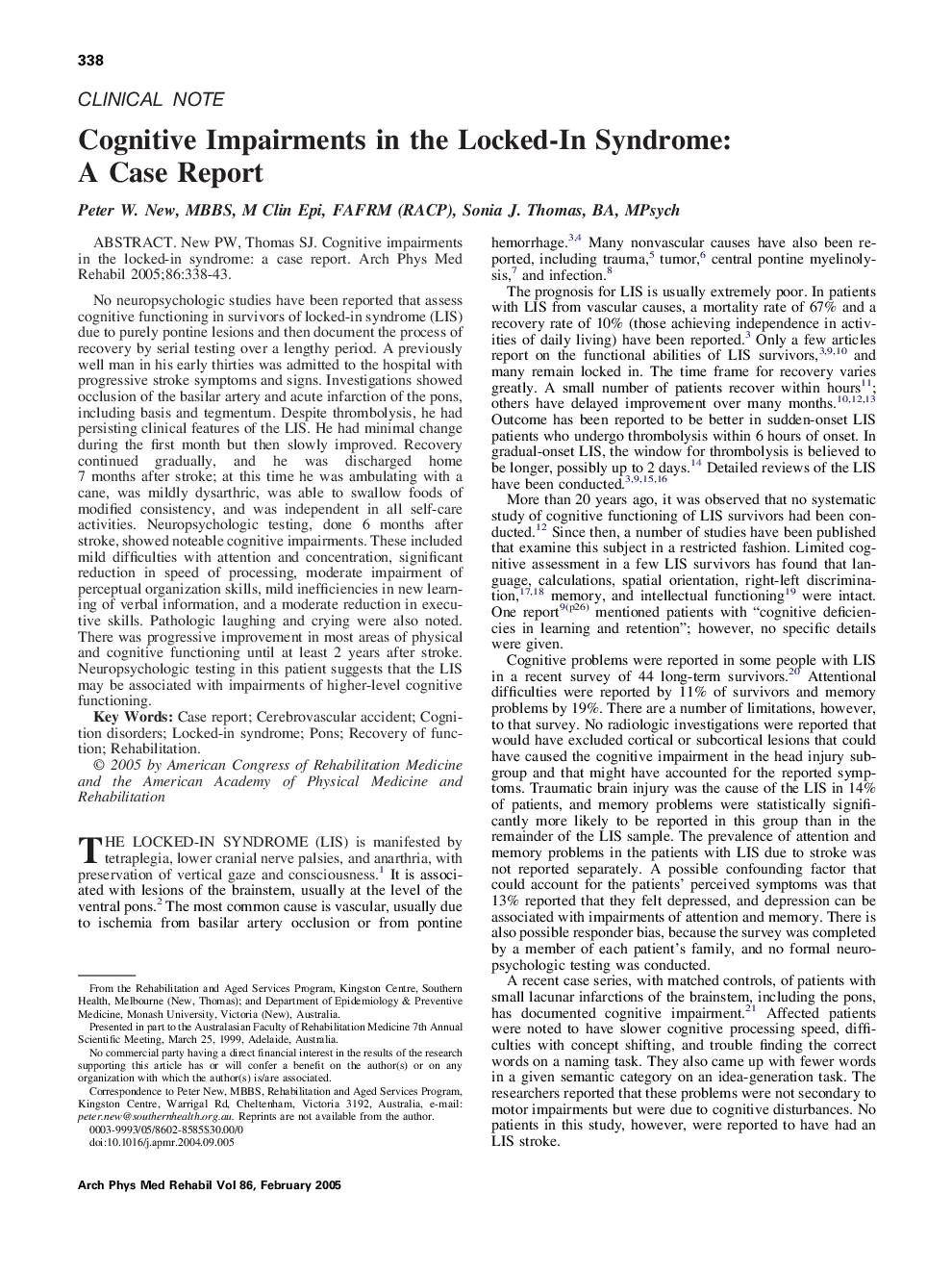| Article ID | Journal | Published Year | Pages | File Type |
|---|---|---|---|---|
| 10041526 | Archives of Physical Medicine and Rehabilitation | 2005 | 6 Pages |
Abstract
No neuropsychologic studies have been reported that assess cognitive functioning in survivors of locked-in syndrome (LIS) due to purely pontine lesions and then document the process of recovery by serial testing over a lengthy period. A previously well man in his early thirties was admitted to the hospital with progressive stroke symptoms and signs. Investigations showed occlusion of the basilar artery and acute infarction of the pons, including basis and tegmentum. Despite thrombolysis, he had persisting clinical features of the LIS. He had minimal change during the first month but then slowly improved. Recovery continued gradually, and he was discharged home 7 months after stroke; at this time he was ambulating with a cane, was mildly dysarthric, was able to swallow foods of modified consistency, and was independent in all self-care activities. Neuropsychologic testing, done 6 months after stroke, showed noteable cognitive impairments. These included mild difficulties with attention and concentration, significant reduction in speed of processing, moderate impairment of perceptual organization skills, mild inefficiencies in new learning of verbal information, and a moderate reduction in executive skills. Pathologic laughing and crying were also noted. There was progressive improvement in most areas of physical and cognitive functioning until at least 2 years after stroke. Neuropsychologic testing in this patient suggests that the LIS may be associated with impairments of higher-level cognitive functioning.
Keywords
Related Topics
Health Sciences
Medicine and Dentistry
Medicine and Dentistry (General)
Authors
Peter W. (FAFRM (RACP)), Sonia J. BA, MPsych,
